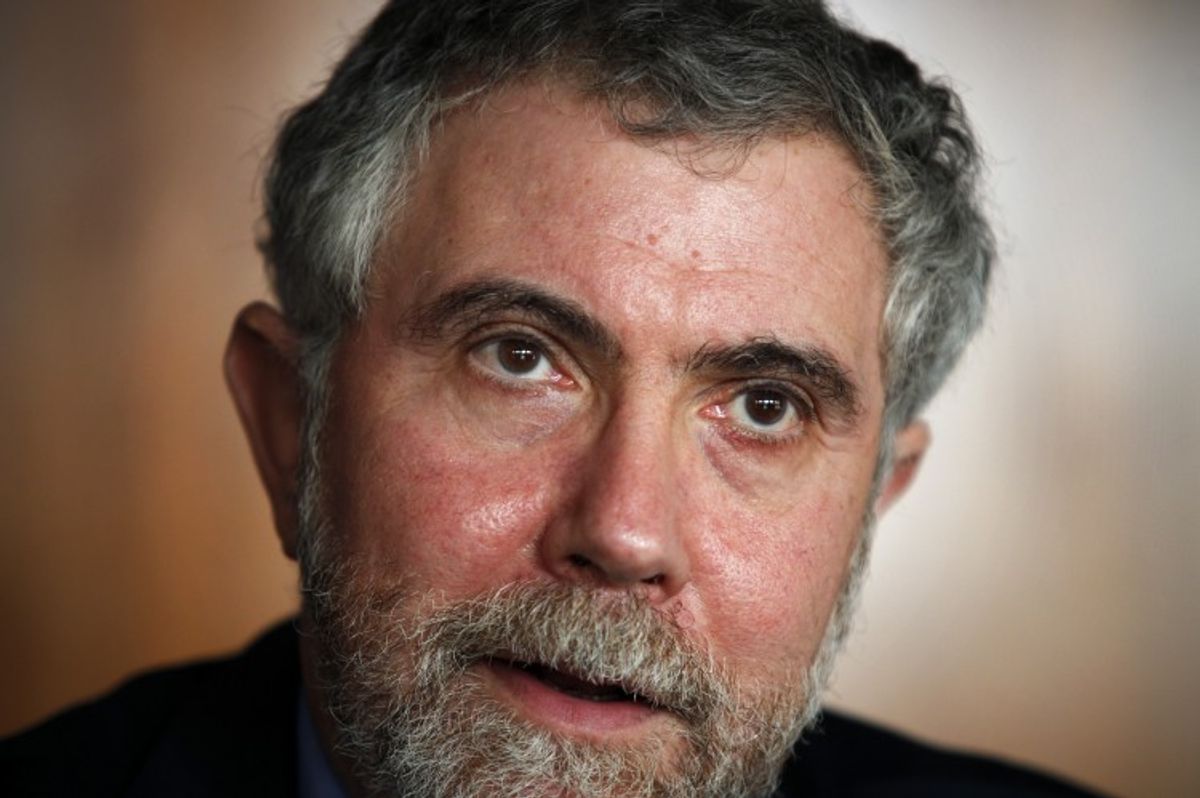How did the Republican Party -- with a favorability rating significantly worse than the Democratic Party's -- manage to trounce the Democrats on Tuesday?
The obvious answer is that midterm elections witness a substantial dropoff in turnout by core Democratic voters; the dynamics of this year's contest simply favored the GOP. But as New York Times columnist and economist Paul Krugman emphasizes this morning, voters awarded Senate control and an historic House majority to a party that has gotten every major policy question of the last several years woefully wrong.
Take the financial crisis and its aftermath. "According to conservative dogma, which denounces any regulation of the sacred pursuit of profit, the financial crisis of 2008 — brought on by runaway financial institutions — shouldn’t have been possible," Krugman writes. But Republicans refused to rethink their reflexive opposition to robust regulation, he notes, and they badly bungled the response to the ensuing Great Recession. Denouncing deficit spending and championing austerity, GOPers like House Speaker John Boehner prescribed policies that actually exacerbate economic slumps. Though the GOP's knee-jerk opposition to government spending didn't stop the enactment of President Obama's 2009 stimulus, the party did preside over a drastic cut in crucial investments like infrastructure after it captured control of the House of Representatives in 2010, and those spending cuts have held back the economic recovery.
On health care reform, meanwhile, the party's predictions of peril haven't panned out. Krugman notes that the GOP forecast "minimal enrollments, more people losing insurance than gaining it, [and] soaring costs." The reality? More people than expected are enrolling in health care plans; the number of Americans without health insurance has substantially decreased; premiums are "well below expectations"; and the rate of health spending growth has slowed.
But the GOP's "most important wrongness of all," Krugman argues, is on climate change. "As late as 2008, some Republicans were willing to admit that the problem is real, and even advocate serious policies to limit emissions — Senator John McCain proposed a cap-and-trade system similar to Democratic proposals," he observes. Now, however, the GOP has entered the era of "I'm not a scientist" -- and steadfastly refuses to act on the threat to our planet. "Now these people will be in a position to block action for years to come, quite possibly pushing us past the point of no return," Krugman laments.
So how did the GOP triumph among the few voters who turned out Tuesday? Krugman points to the GOP's effort to shroud its unpopular positions and -- most important -- the party's successful bet that obstructionism is a winning political strategy:
Part of the answer is that leading Republicans managed to mask their true positions. Perhaps most notably, Senator Mitch McConnell, the incoming majority leader, managed to convey the completely false impression that Kentucky could retain its impressive gains in health coverage even if Obamacare were repealed.
But the biggest secret of the Republican triumph surely lies in the discovery that obstructionism bordering on sabotage is a winning political strategy. From Day 1 of the Obama administration, Mr. McConnell and his colleagues have done everything they could to undermine effective policy, in particular blocking every effort to do the obvious thing — boost infrastructure spending — in a time of low interest rates and high unemployment.
This was, it turned out, bad for America but good for Republicans. Most voters don’t know much about policy details, nor do they understand the legislative process. So all they saw was that the man in the White House wasn’t delivering prosperity — and they punished his party.



Shares